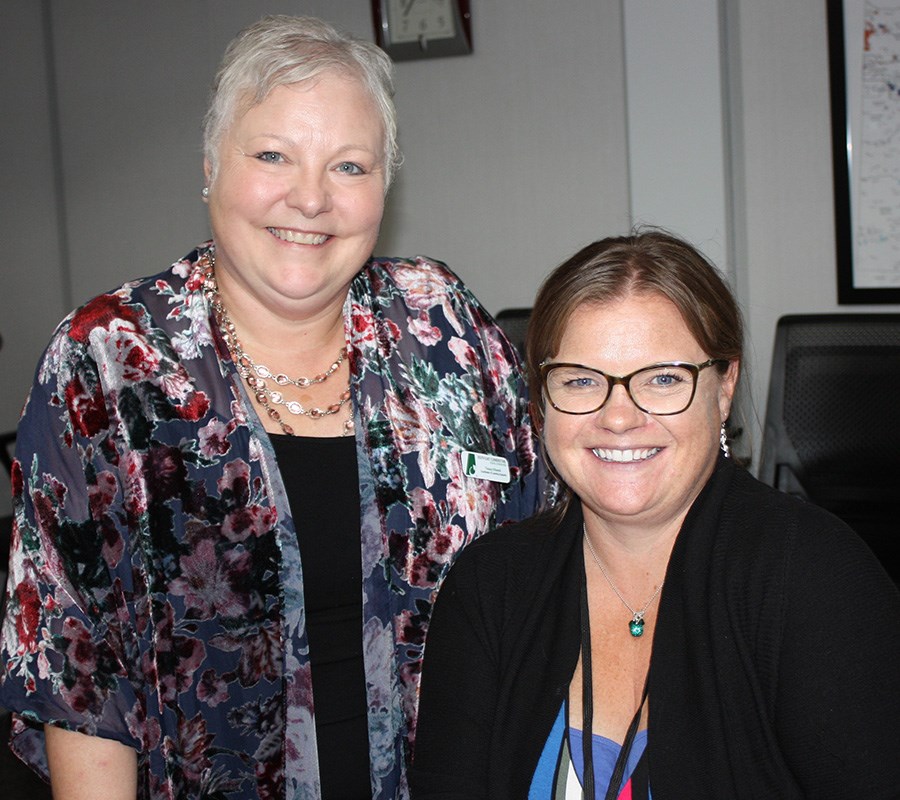They may be hidden or they may be quite visible, but disabilities within the student populations in the South East Cornerstone Public School Division are to be discovered and dealt with professionally and expertly with as little disruption to normal class flow as is possible.
Tracey Kiliwnik, the co-ordinator of learning supports, and Amber Fornwald, a student services consultant, teamed up to present an oral and visual report to the division’s board of trustees during their Sept. 18 open business session.
“This is usually a collaborative team approach,” Kiliwnik said, referring to the professional practices in the schools as well as their presentation.
“Fair isn’t equal – fair means we all get what we need,” said Kiliwnik, supporting her opening statement with others.
Seeking out inclusion, acceptance and safety for all, the two women pointed out the supports students may require to eliminate their personal barriers to learning and how they can foster an attitude of respect, appreciation and acceptance of diversity.
The collaborative approach, they added, allows for positive problem solving, the sharing of ideas and parent engagement while providing an environment that is safe for the student both physically, culturally and emotionally.
Kiliwnik noted how some emotional outbursts are handled expertly with one on one engagements that get the student back into the classroom system efficiently and effectively with little disruption.
The presentation to the board included data outlining that training to support behavioural interventions are implemented for staff with behavioural students requiring these services. There were 10 trained staff members in the 2011-12 school year and there are now 14 trainers who train others who can focus on behaviour processes, training and re-certification.
Fornwald took the directors down a path that helped explain some of the “whys” and “hows” of certain behaviours and how the trained personnel are able to de-escalate issues so that they don’t reach a crisis level.
“It’s a step by step process, one step at a time until we find what works,” Fornwald said. “We also have to be well aware of our own emotions and how we can switch off.”
If the crisis does escalate there are certain other strategies deployed, again, taking one step at a time to find one that works. Sometimes that might involve removal of peers and dangerous objects and monitoring from a safe distance and no immediate interaction with the person in question until they demonstrate a calmer behaviour. After that, they switch to a helping strategy to de-escalate the situation.
There are 220 Cornerstone staff members trained to deal with a variety of behavioural issues among student bodies within the division that has a total student population of about 8,300.
The women noted there are 10 students noted as having Level 1, or more intensive needs and close monitoring while another 30 have lesser levels of behavioural issues to address. They also spoke about future planning and feedback they have received from teachers, administrators, educational assistants and other staff members regarding the roll out of these plans.
Estevan trustee Shari Sutter asked how students can be helped in dealing with parental issues.
Fornwald noted they are given some coping mechanisms and “while we may not be fixing, we’re helping them with strategies.”
The presentation was bolstered by three videos provided by consultants at three different schools who spoke of successful strategies they deployed to meet student behavioural challenges.



